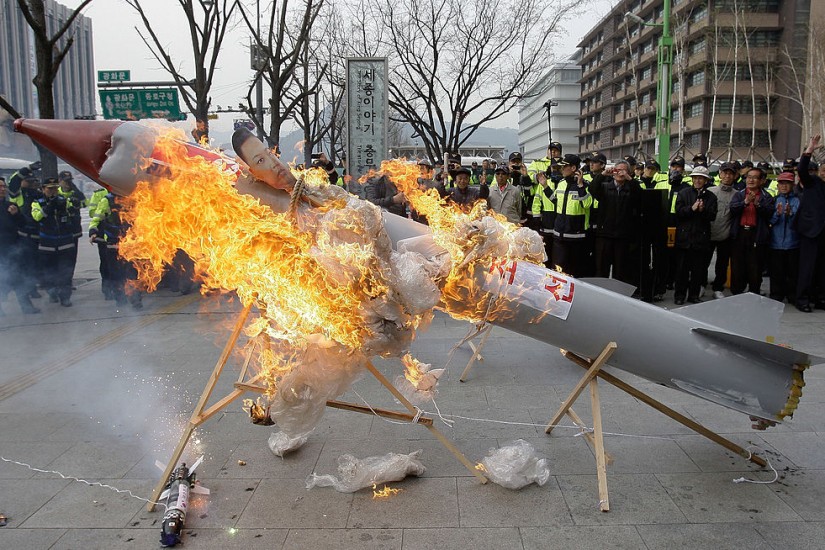A hidden assumption underlies the debate over North Korea. The assumption is that preventive war—war against a country that poses no imminent threat but could pose a threat in the future—is morally legitimate. To be sure, many politicians oppose an attack on practical grounds: They say the costs would be too high. But barely anyone in the foreign policy mainstream calls the idea itself abhorrent.
By historical standards, that’s astounding. Over the past two decades, American foreign policy has undergone a conceptual shift so complete that its current practitioners don’t even acknowledge how revolutionary their current views are. During the Cold War, the dominant figures in American foreign policy considered preventive war to be fundamentally un-American. A member of the Truman, Eisenhower, Kennedy, or Reagan administration, transported to 2017, would wonder how their successors embraced a principle that they associated with the regimes America fought in World War II.
In the second half of the 20th century, when America’s leaders heard “preventive war,” they thought about Nazi Germany and Imperial Japan. And for good reason. Both regimes had used the doctrine to justify their attacks in World War II. In August 1939, on the eve of his invasion of Poland, Hitler told his generals that, “we are faced with the hard alternative of either striking or the certainty of being destroyed sooner or later.” In a 2006 journal article, University of Pittsburgh law professor Jules Lobel quoted the Commander of the Japanese fleet, Admiral Yamamoto, as writing that, “[i]n the event of outbreak of war with the United States, there would be little prospect of our operations succeeding unless, at the very outset, we can deal a crushing blow to the main force of the American fleet in Hawaiian waters.”
Americans wanted a postwar system that outlawed such logic. In 1945, at the San Francisco Conference that founded the United Nations, the American delegate Harold Stassen explained that the United States “did not want exercised the right of self-defense before an armed attack had occurred.”
